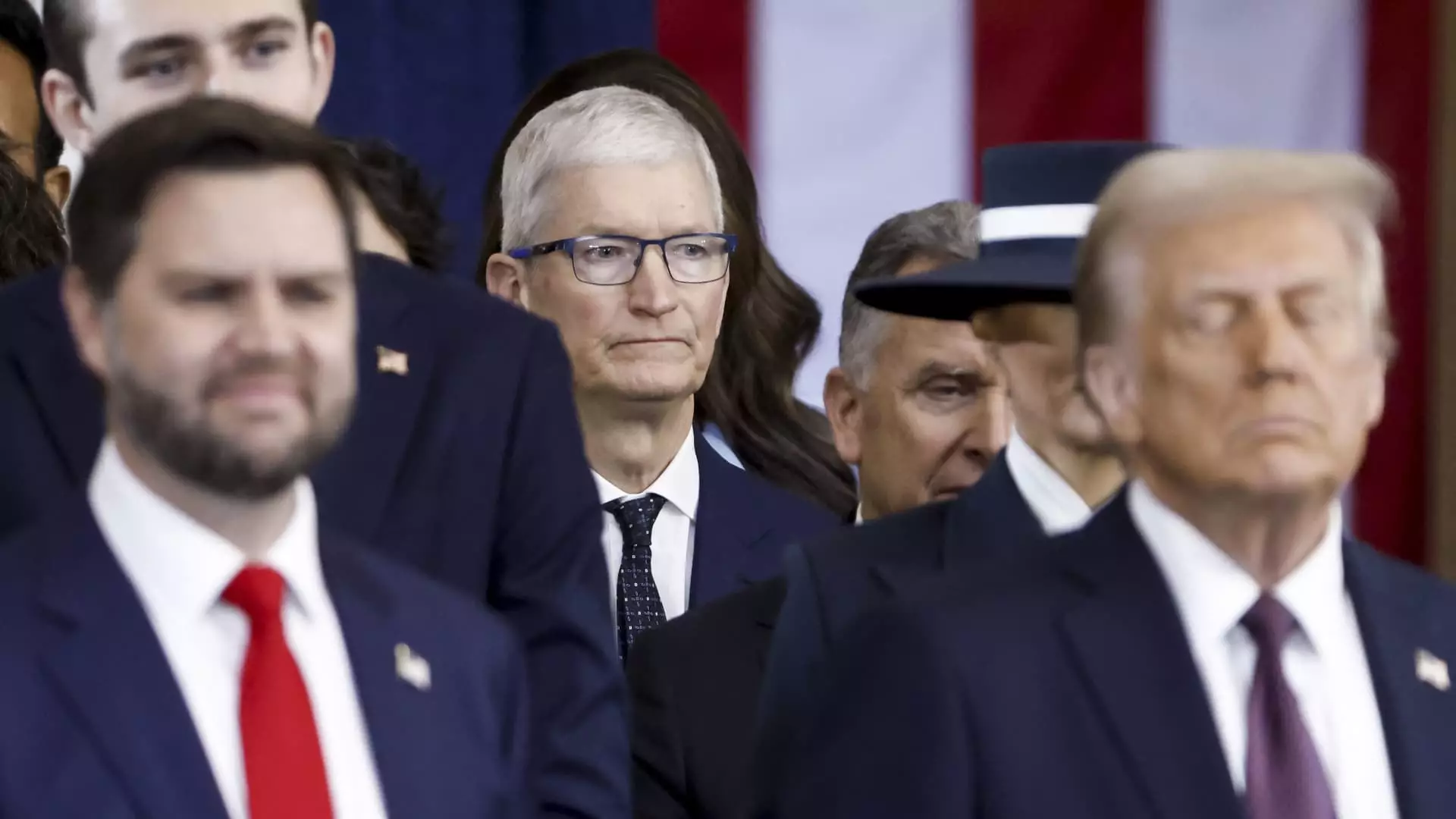In the turbulent waters of economic policy, President Trump’s new tariffs have sent shockwaves through the tech sector, notably causing Apple’s stocks to plummet by more than 6%. This isn’t just a minor fluctuation; it’s a harbinger of the chaos that can ensue when political rhetoric clashes with the realities of global commerce. Apple, a flagship of American innovation, hinges a significant portion of its revenue on its ties with Asian manufacturers, primarily in China. The irony of punitive tariffs on imports from countries where its devices are produced is not lost on anyone watching this unfolding drama.
The tariffs—ranging from 10% to a staggering 49% on specific imports—throw into question the viability of China-based production for many tech giants. Apple and companies like Nvidia and Tesla, which also suffered drops of 4% and 4.5% respectively, find themselves caught in a vise: the president’s promise of economic independence appears increasingly incompatible with their need for global supply chains.
The Paradox of Domestic Production
While Trump presents tariffs as a patriotic commitment to “supercharging” the domestic industrial base, the palpable risks involved must be critically examined. It’s hard to argue that raising prices on imports will lead to lower consumer prices in the long run. The promise of constructing plants in the U.S.—as Trump claims Apple will do with its ambitious $500 billion investment—ignores not only the immediate economic turbulence but also the nuanced intricacies of scaling production domestically amid rising costs.
Trump’s rhetoric paints a picture of a gilded future of American manufacturing, yet recent market responses serve as stark reminders of the volatility associated with such mercantilist policies. U.S. companies are not bureaucracy-free entities; they are global enterprises that thrive on efficiency and cost-effectiveness, which often necessitate international collaboration.
The Market Reaction: A Broader Economic Dilemma
The palpable unease within the stock market as evidenced by the declines across major tech players—Alphabet, Amazon, and Meta—all losing between 2.5% and 5%—signals a broader crisis of confidence. The tech industry is the backbone of today’s economy, and any tremors in this sector leave in their wake a trail of uncertainty throughout the entire market landscape. Trump’s assertions that a triumphant America will result from tariffs ring hollow when juxtaposed against the immediate fiscal reality.
The Nasdaq, witnessing its worst quarterly performance since 2022, dropped a staggering 10%. Can we genuinely believe that imposing barriers to trade will bolster the economy? The paradox here is that while Trump’s policies aim to protect domestic interests, they risk riling investor sentiment and breeding a culture where innovation languishes in the face of uncertainty.
As tariffs push prices upward, consumers and investors alike are caught in the crossfire of a flawed vision of economic independence. The dialogue must shift from sloganeering about patriotism to a more nuanced understanding of the interconnected economic tapestry of our global society. Market players deserve policy clarity that fosters innovation rather than choking it through artificial constraints on trade.

